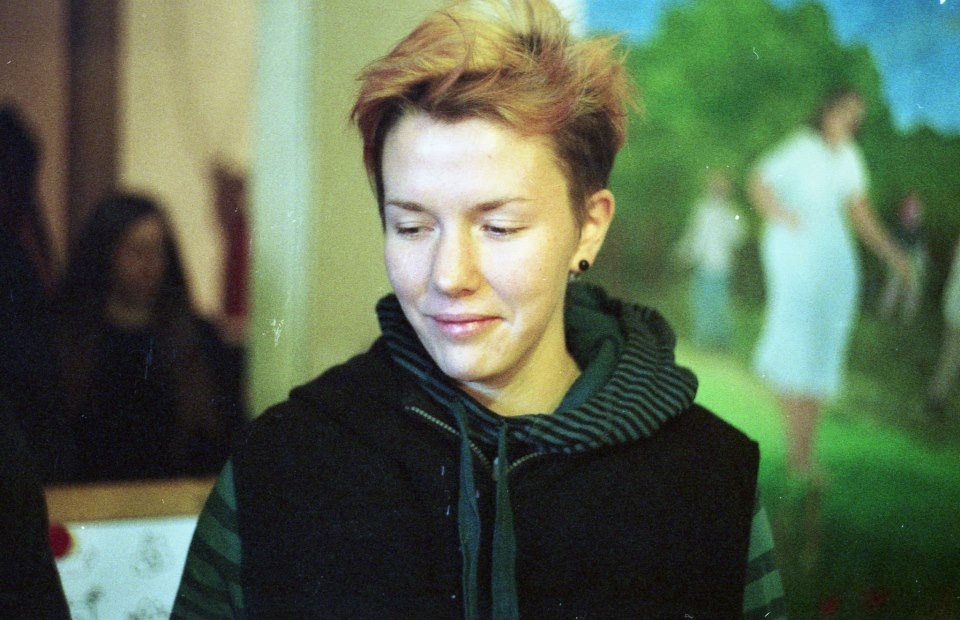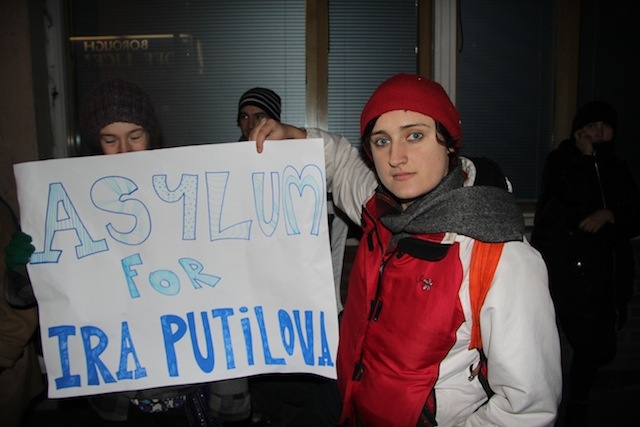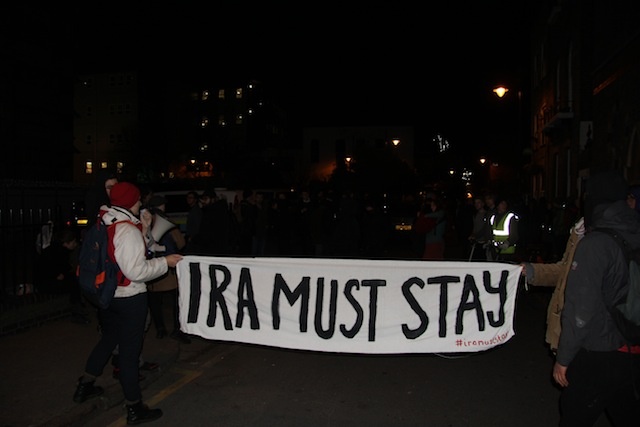
Advertisement
Ira Putilova: I arrived at 1 AM on Saturday morning. They have this rule that they put people from the same country—or people who speak the same language—together. I was the only person there from Russia, so they put me in a room with two beds. There was a fire alarm that kept going off during the night and I didn’t sleep a lot. I spent a few hours on Saturday trying to work out what was going on. Then I started to do my paperwork and began speaking to people. Most were really desperate.
Advertisement
I started to gather stories from people. I have 15 stories to publish now. There were three of us going around asking people.Are there any stories you can share?
I want to emphasise the case of Prossie N. She’s from Uganda. She’s 20 years old. When she was really small, she lost her family. When she was eight years old her uncle would constantly rape her. She escaped from him. When she was 15, she was at school and realized that she was a lesbian. She had a lot of problems because of that. She somehow managed to escape in 2010. Since then, she's been trying to get asylum here in the UK, but she can’t. Now she’s in a detention center and they want to send her back to Uganda on Thursday.

Her case is really, really tough.When did you find out you were going to be freed?
At 5 PM on Monday.Did they apologize for imprisoning you?
No. I don’t even know who "they" are. You never see them. I never met the people who could actually apologize. I have no idea who made the decisions—probably somebody I'll never see.How was it leaving people behind who might be deported?
It was one of the most stressful situations. It wasn’t that stressful going in; it was more stressful getting out. I was supposed to give English lessons there yesterday. I feel it’s unfair that I’m here now and [the people remaining in the center] are supposed to be deported. One of my friends was deported last night and I have no idea what’s going on with her.
Advertisement
I have my asylum appointment today and they're going to tell me when my interview is going to be. Then I’m just going to follow the usual process in asking for asylum. Hopefully they aren’t going to detain me again.How likely is it that you’ll be granted asylum in Britain now?
With all the support I have, I feel I have a good chance. But nobody knows because they make really different decisions. In England there are a lot of cases where people have all the reasons to [be granted] asylum and they still don’t get it. So I don’t know; I can’t presume.What would happen if you had to return to Russia?
As long as I’m on the federal warrant list, I’ll be arrested. Because it’s a dictatorship, they try to imprison as many activists as possible. Because Russia is totally different than here, they can do whatever they want, so I know for sure I’d be arrested and probably put in prison before [a court appearance].

One of my friends—another activist—was very active, and he started to get death threats and emails from somebody in the anti-extremist department. They aim to protect people from extremism, but that means they arrest all activists, follow them, and use illegal means to get any information to understand how networks are built. So my friend started to get threats by email, and one of them said that if he didn’t stop with the activity he would lose both of his legs. We were like, "OK, OK—these are just emails." One day, some people on the street broke both of his legs.How did you react to that?
After that we started a big campaign to show how it works in Russia. After and during the campaign, I started to get the same emails from the same email address. We were scared. We know they actually did what they promised to do. I spent a month in a very strange situation and rarely left my house. So it was scary.How do you feel about the way the UK government deals with asylum seekers?
They don’t think of asylum seekers as individuals, as people. They have dozens every day, so it’s just routine. They’re just papers that are coming to their table. So they ask the same questions to everybody and they don’t go into detail in the first interview. But people can be detained after the first interview, like I was. It means that, after the first interview, answering really general questions, you can be detained and deported easily. You can have such a big case and mental problems because of it, but it doesn’t matter because you’re just a piece of paper to them. I think it’s awful.Yeah.
In the cafe where we ate, there were pictures of New York and London. At the same time, people are being deported. Can you imagine? They come to this place three times a day and see pictures of London, then can be deported to Uganda, or somewhere else where they can be killed.Follow Oscar on Twitter: @oscwilliams